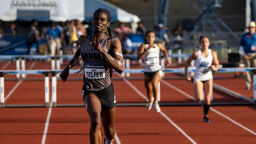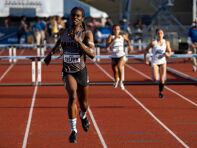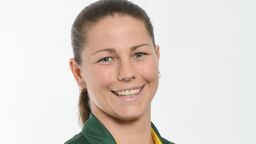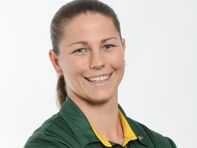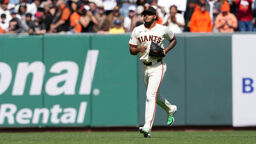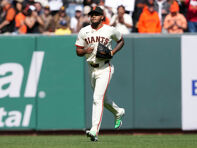I remember waking up in the hospital bed with my rector sitting quietly nearby while the Notre Dame – Michigan State football game played silently on TV. Barely conscious, I leaned forward to see an IV protruding from my arm. Pity was in the air and it was smothering me. "I never wanted this. What had I done?"
The night before, I attempted to take my own life. Since my childhood, I was taught that being gay – a secret buried inside me since middle school – I was bad, I was wrong, and I was unworthy of respect. In an instant the night before, each of these thoughts overwhelmed me and, in my desperation, I made the worst mistake of my life.
On September 16, 2011, early in my sophomore year at Notre Dame, I attempted to take my own life. That day I wanted nothing more than to escape the anguish of coming out to my family, my friends, and, in a way, myself. Death was better than accepting – or revealing – that I was gay.
Awakening in my hospital bed to the aftermath, my very first thoughts were of my family – I didn't want them to know I was gay or that I tried to kill myself. Fr. Dan Nolan assured me that they didn't know, and that the events of the previous night would remain confidential should I so wish. Even he was oblivious to my sexual orientation – that secret remained buried.
When I was led out of the hospital to the designated psychiatric ward, I was in handcuffs like a criminal. I felt the part. For the next 36 hours I shared a room with a schizophrenic. I was 19 years old, more lost than I'd ever been, and I was scared. I remember thinking: There is no way back from this.
Walking into the office of the ward's physician, I could feel my palms slick with sweat. "What do I say? What will get me out of here?" That was all I could think about. It was after just a few simple questions that I was given the green light to leave. In my naiveté, I was thrilled. There was hope again that maybe nobody would know I was gay. There was hope that I could return to the very same life that had lead me to disaster.
When Fr. Nolan picked me up to bring me back to the dorm, he carried with him the revelation that would haunt me for the next year: "Matt, I have bad news. The university informed your parents of your suicide attempt."
I never once had a moment where I consciously thought, "I'm gay." The revelation was more an encounter with a familiar and intrinsic aspect of my being for which I had no name. I know that from a young age I learned the lesson almost all of us are taught: People are either heterosexual, straight, and good – or homosexual, gay, sinful, and bad.
While my immediate family was never vocally anti-gay throughout my childhood, my family was military and Catholic. Church-going and doctrine-learning were forgone conclusions. It wasn't long before I started to connect the dots and see that some aspects of the Church's teachings were not exactly adding up with where my life was headed.
It was a few hours after dinner when I was 9 that I joined my older brother Dan for a movie in the living room: "Scary Movie," the epitome of teenage humor in the 90s.
Thirty minutes into the movie my brother erupted in laughter from the couch behind me. Instantly aware that another comedic line had evaded me, I was intrigued by the notable response from my brother.
"I don't get it, Dan," I said.
"That dude is gay," he responded through his lingering smirk.
Still lost in my own childhood ignorance, all I could offer in reply was, "But, what does that mean?"
I had inadvertently told the joke of the night, drawing a gut-wrenching laugh from my brother.
I was only 9 years old, but the instant fear that so permanently engraved this memory in my mind would become a familiar feature of my next decade.
 Must Reads
Must Reads 
Growing up outside of San Antonio, Texas, I played just about every sport I could. I was gifted with both the mental and physical determination of my marathon-running mother, and the muscled physique of my all-sport father. I was frequently the best player on my youth basketball and baseball teams and, while it's tough for my competitive side to admit, being a "just average" soccer player isn't the worst thing in the world. I loved training, competing and teamwork, but most of all I loved winning.
By the time I entered high school, I had already made a name for myself in the Texas tennis circles and was achieving some success on a national scale. I was consistently ranked in the top ten in Texas for my age group and breached the top hundred nationally in both the 12-and-under and the 14-and-under categories. My first day of high school came less than a week after having placed fourth in a doubles national championship tournament. While in high school I won a total of four state championships. My success drew the attention of the University of Notre Dame, where I committed to attend.
While I forged a trail of success in high school sports, homophobia ran rampant. I spent many years listening to my peers ridicule one another with jeers of "that's gay" or "what a fag." Despite being in a leadership position, despite having the ability to limit some of this hateful speech, I stayed silent. I did nothing. It hurt.
I arrived on the campus of Notre Dame completely aware of the conservative environment and what to expect. This institution's religious affiliations and its resulting culture can be easily described as a pressure cooker for someone struggling with his sexual orientation. While I was excited by the prospect of playing and winning tennis matches for the university, I was beginning to tire of the mental burdens that are unavoidably associated with being closeted – burdens that are compounded for an athlete. Unable to entertain the possibility of ever coming out, I pushed forward and paid little attention to my worsening mental state.
I struggled for the first time both academically and athletically my freshman year. I failed to make the starting line-up or even the travel squad of the team. For the first time in my life it became crystal-clear to me that I was not, in fact, overly remarkable.
By the time I returned to campus for my sophomore year, my self-worth had completely collapsed. I was finally forced to address the issue of my sexual orientation, and I had to do so from the only point of view I had ever known: I was wrong, undeserving of respect, and I had a life that was not worth living.
After a night of heavy drinking, I took a particular bottle of pills that I had been saving, and I left my dorm with the intention of never returning. I didn't even think it was worthwhile to leave a note; I had convinced myself that I wouldn't be missed.
Waking up in the hospital the next day, I'd never sensed more disappointment than I did right then – disappointment in myself. How did I get to this point? How could I let myself do something like this?
Even after being released from the hospital, things didn't improve for me. For months, my parents called me several times a day. I never answered. I couldn't bear the thought of facing them, even if only verbally. Even messages from my sobbing mother could not budge me to call them back. "What would I say, what would I tell them? What if I told them everything and they hated me?"
After not returning home for Christmas that year, I received a voicemail that informed me of their ‘giving up.' I was alone. I had made myself alone, all out of fear.
That spring, my stress level was at an all-time high. I knew that I had no money and no way of paying tuition. My days were plagued with endless worry.
Tennis practice became the only part of my day when my mind could relax. It was the one place where I felt protected and removed from it all. Tennis became my refuge. While none of my teammates knew about my sexuality, we were all relatively close. Being on such a small team of only 14 or 15 athletes really fosters a sense of community, and that was a part of life that I desperately lacked and needed. While our training was never easy, when I was there, I felt at home.
Last summer, after exhausting every possible way of continued avoidance, I decided to finally face my parents. Telling them I'm gay proved to be easier than expected, as it has for so many before me. They said they were both understanding and supportive, and that nothing would ever change the fact that I was their son. Yet I still didn't trust them. I couldn't. Eating at me was the most powerful truth driving me this whole time: I still didn't even like me, so no one else could possibly love me either.
When I returned to school, I started falling apart again. Despite my somewhat salvaged family situation, I still felt entirely alone. I was headed down the same self-destructive path.
This time, I chose a different path.
I told my teammate Greg Andrews about everything. I risked it all and put in jeopardy my involvement with tennis, my last remaining oasis in a desert of distress.
As the words began fumbling out, I could feel the fear growing inside me. It can be tough to say the word "gay" for the first time. Once it's out, there's no going back. Before I could even think, it was over. I had told him everything. I remember wanting to just break down. I expected him to turn his back and simply walk away.
"Really? Really?" he said. "Man, I don't care. You're one of my best friends on the team. This doesn't change anything, you are still Dooley to me."
The moment was powerful for me because he had no reason to lie. He was not responsible for me as a family member might be, nor would he have been publicly shamed for washing his hands of me. I wasn't even an essential part of the team at that point. But in that moment, Greg showed me that somebody could know me, truly know me, and still respect me.
Notre Dame teammates greet Dooley (left) after a match.
Since that day I've started in 27 matches for the Irish, going 15-10 (two unfinished) – not bad for the No. 6 team in the country. I've also gained admittance to the medical school of my choice.
I have also learned to value myself and accept my sexuality as something that's neither good nor evil, but is just an essential part of who I am. I've learned to respect myself and expect it from others. I have learned to trust again and, maybe most importantly, I've realized that I am not alone. There are others just like me, combatting the same fear of abandonment and worthlessness every single day. Not all of them are as fortunate as I to have a friend or teammate catch them before it's too late.
After a summer of contemplation, I knew what my next step had to be. I came out to my coaches in early September, and to my teammates on the two-year anniversary of my suicide attempt. The timing wasn't planned, but it felt fitting.
This time around, there was no worry about acceptance or self-worth. Every single member of the team and coaching staff was extremely supportive, many echoing gratitude for my honesty and, in a way, bringing the team closer together. That day reaffirmed my strong belief that we, the athletes of Notre Dame, are truly a brotherhood.
As of September, my teammates and coaches finally know me. I still walk into practice respected every day. I feel at home here, and I want everyone else to feel the same.
To that end, I've sought the help of the Student Welfare and Development office. As a product of the SWD's tireless efforts, the groundwork has been laid for an amazing You Can Play project initiative here at Notre Dame, and support within the athletic department has been offered along every step of the way. One thing is truly evident: incredible things are about to happen here at one of the most prominent Catholic universities in the world.
Dan Savage's "It Gets Better" project might be the most appropriately titled concept of all time, because the life of our gay youth, particularly those who are athletes, does just that: It gets better. Better is not perfect nor free of difficulty and pain, and neither am I. I still battle my daily demons.
But I have since made the conscious decision that my challenges do not and will not define who I am. I am a son, a brother, and a friend. I am a student, a teammate, and a future physician. I am a chaser of dreams and an achiever of goals. I am a gay man who is now proud to stand up for those just like me and show them that they, too, can strive for greatness both athletically and professionally.
I share this story in hopes of sending a single message to other gay athletes like me: No matter the circumstance or situation, you are never alone.
Matt Dooley is a senior at Notre Dame. He is working with the student welfare and development office at the school, along with the You Can Play project, to create a support structure for LGBT Fighting Irish athletes. You can find him on Twitter @MattDooleyND and via email at [email protected].



